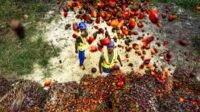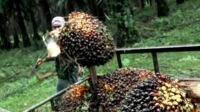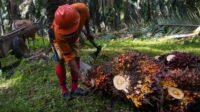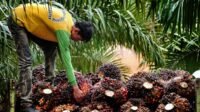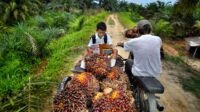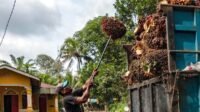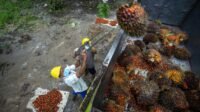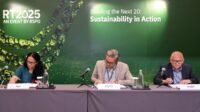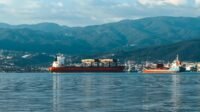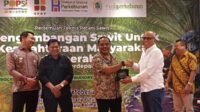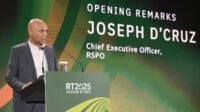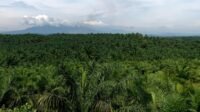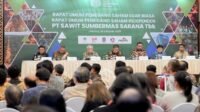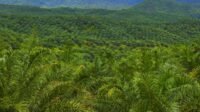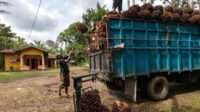PALMOILMAGAZINE, JAKARTA – Yanto Santosa, a Professor at the Faculty of Forestry, Bogor Agricultural University (IPB), emphasized the urgent need for the One Map Policy to regulate oil palm plantations in Indonesia. This aligns with the implementation of Presidential Regulation (Perpres) No. 5 of 2025 on Forest Area Regulation.
According to Yanto, land regulation must be carried out wisely while considering the sustainability of the palm oil industry at local, national, and international levels.
“The One Map Policy initiated by the previous government must be enforced immediately so that all stakeholders refer to a single, unified map. Currently, the Ministry of Forestry and the Ministry of Transmigration each have their own maps, leading to inconsistencies,” Yanto stated in an official release in Jakarta on Tuesday (March 10, 2025).
Also Read: TNI’s Strategic Role in Regulating Illegal Oil Palm Plantations
He stressed that the Forest Area Regulation Task Force must operate based on an officially validated forest map to avoid legal uncertainties and conflicts of interest.
The Importance of Forest Area Validation
Yanto highlighted that validating forest areas is a crucial step in establishing the legal status of land designated as forest areas. Ideally, this process should involve all stakeholders, including local communities.
“Forest area designation should not be done unilaterally, as has often happened in the past. It requires legitimacy from multiple parties, including the public,” he added.
Also Read: Government Urged to Consider Job Loss Risks in Palm Oil Sector Amid Forest Area Regulation
Data from the Ministry of Environment and Forestry (KLHK) indicates that out of 16.38 million hectares of oil palm plantations in Indonesia, 3.3 million hectares are within forest areas. Therefore, careful land inventory and mapping are essential to ensure proper land management within forest areas.
Additionally, public consultations are necessary to ensure transparency and prevent social conflicts. Local communities and stakeholders must be given the opportunity to provide input or objections regarding forest area designations.
Following the boundary-setting process and public consultations, the government will officially designate forest areas through a Ministerial Decree. This decree will define the boundaries and functions of forest areas, whether as protected forests, conservation forests, or production forests.
Support for Perpres No. 5 of 2025
Furthermore, Yanto expressed support for Perpres No. 5 of 2025, stating that it carries a positive intent to regulate forest areas. However, he noted that the Omnibus Law (Job Creation Law) already provides solutions through penalty-based regulations, as outlined in Articles 110A and 110B.
“The solution must be a win-win approach. The implementation of this regulation should not result in the sudden state takeover of oil palm lands long managed by communities without a clear mechanism,” he warned.
By fully implementing the One Map Policy, the forest area regulation initiative is expected to be more transparent and fair for all stakeholders. (P2)







